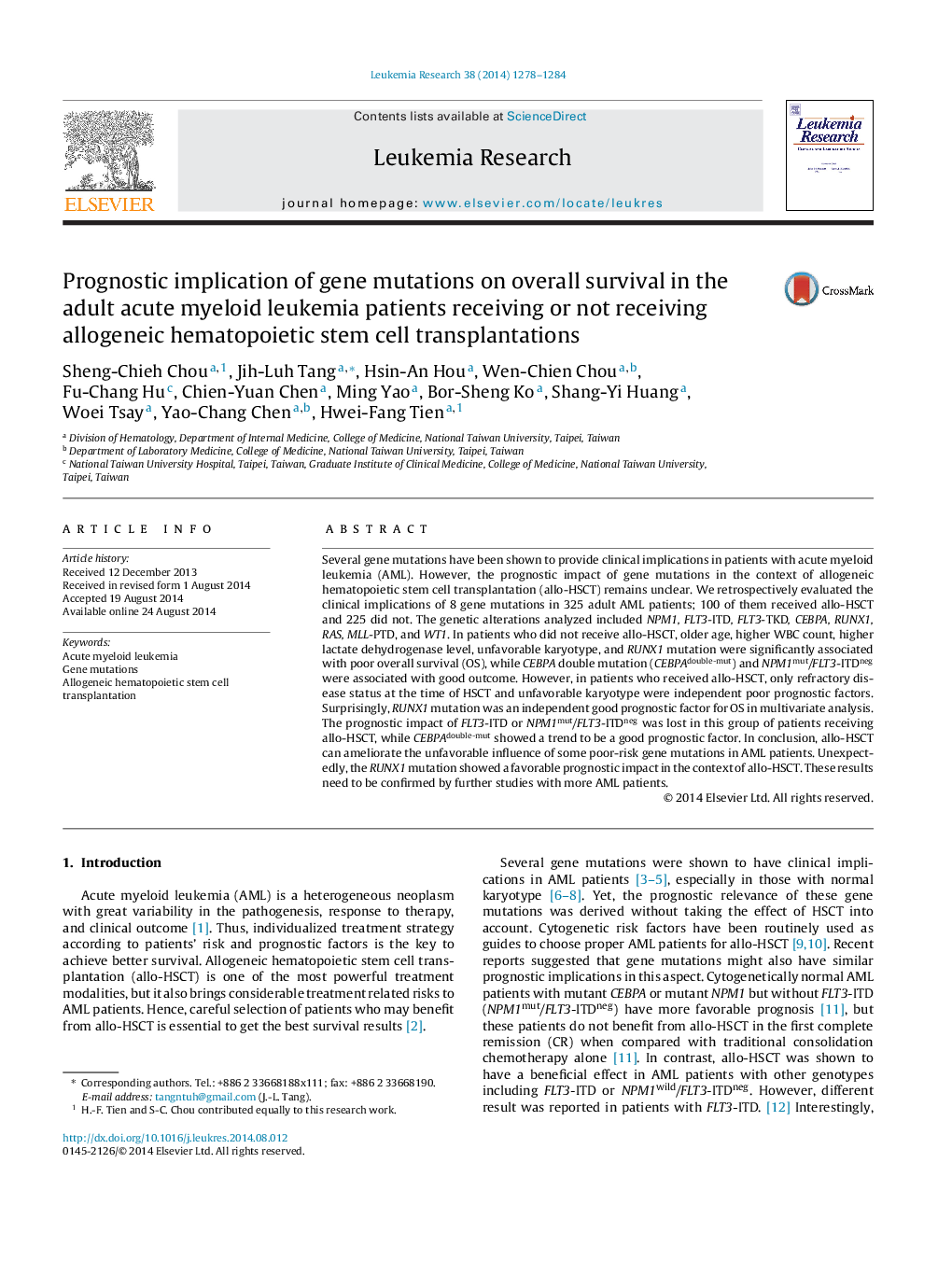| Article ID | Journal | Published Year | Pages | File Type |
|---|---|---|---|---|
| 2136655 | Leukemia Research | 2014 | 7 Pages |
Abstract
Several gene mutations have been shown to provide clinical implications in patients with acute myeloid leukemia (AML). However, the prognostic impact of gene mutations in the context of allogeneic hematopoietic stem cell transplantation (allo-HSCT) remains unclear. We retrospectively evaluated the clinical implications of 8 gene mutations in 325 adult AML patients; 100 of them received allo-HSCT and 225 did not. The genetic alterations analyzed included NPM1, FLT3-ITD, FLT3-TKD, CEBPA, RUNX1, RAS, MLL-PTD, and WT1. In patients who did not receive allo-HSCT, older age, higher WBC count, higher lactate dehydrogenase level, unfavorable karyotype, and RUNX1 mutation were significantly associated with poor overall survival (OS), while CEBPA double mutation (CEBPAdouble-mut) and NPM1mut/FLT3-ITDneg were associated with good outcome. However, in patients who received allo-HSCT, only refractory disease status at the time of HSCT and unfavorable karyotype were independent poor prognostic factors. Surprisingly, RUNX1 mutation was an independent good prognostic factor for OS in multivariate analysis. The prognostic impact of FLT3-ITD or NPM1mut/FLT3-ITDneg was lost in this group of patients receiving allo-HSCT, while CEBPAdouble-mut showed a trend to be a good prognostic factor. In conclusion, allo-HSCT can ameliorate the unfavorable influence of some poor-risk gene mutations in AML patients. Unexpectedly, the RUNX1 mutation showed a favorable prognostic impact in the context of allo-HSCT. These results need to be confirmed by further studies with more AML patients.
Related Topics
Life Sciences
Biochemistry, Genetics and Molecular Biology
Cancer Research
Authors
Sheng-Chieh Chou, Jih-Luh Tang, Hsin-An Hou, Wen-Chien Chou, Fu-Chang Hu, Chien-Yuan Chen, Ming Yao, Bor-Sheng Ko, Shang-Yi Huang, Woei Tsay, Yao-Chang Chen, Hwei-Fang Tien,
